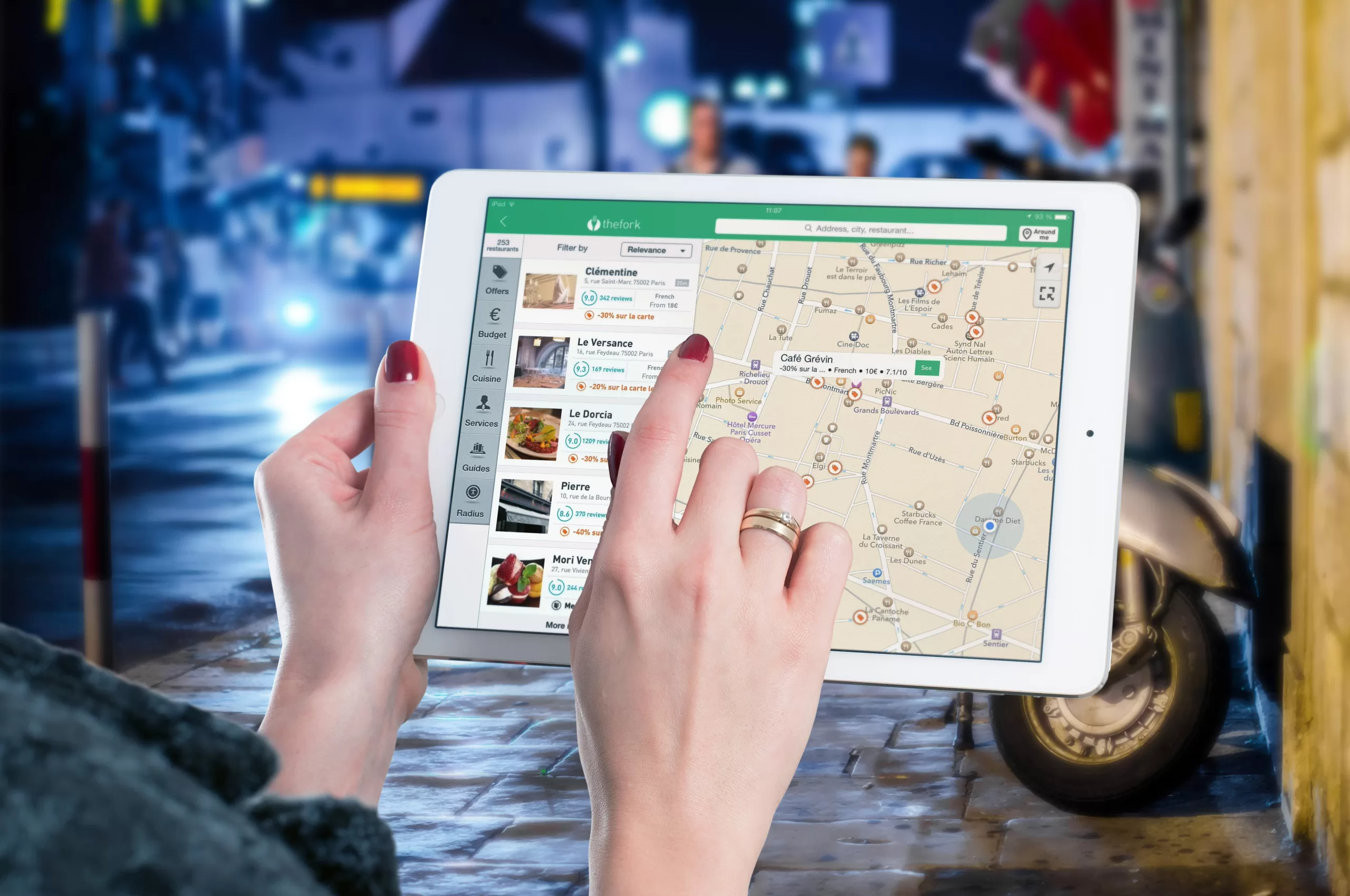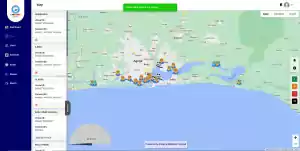Unlocking the Potential of Location Intelligence in today’s business world involves understanding customer’s needs and behaviors. While businesses have long relied on demographics and psychographics to gain insights into their customers, location intelligence has become an increasingly important tool in recent years. Location intelligence involves analyzing data about where your customers are located and how they interact with your business. This data can help businesses make informed decisions that can drive growth and increase revenue. In this article, we will explore strategies for success in unlocking the potential of location intelligence.
Understanding Location Intelligence
Location intelligence refers to the use of geographic data to gain insights into customers, competitors, and markets. It involves analyzing data about where people are located, how they move, and what they do. With the rise of mobile devices and the Internet of Things (IoT), location data has become more abundant and accessible than ever before. Businesses can use this data to gain insights into consumer behavior, optimize their operations, and improve the customer experience.
One of the key benefits of location intelligence is that it provides businesses with a more complete picture of their customers. Demographic and psychographic data can tell you a lot about your customers, but location data can provide insights into their behavior in the physical world. For example, it can tell you where your customers go before and after they visit your store, how long they stay, and what they do while they are there.
Benefits of Location Intelligence
The benefits of location intelligence are many. By analyzing location data, businesses can gain insights into consumer behavior, optimize their operations, and improve the customer experience. Here are some of the key benefits of location intelligence:
1. Better Understanding of Customers
Location data can provide businesses with a more complete understanding of their customers. By analyzing where their customers are located and how they move, businesses can gain insights into their behavior in the physical world. This can help businesses understand what their customers are interested in, what they need, and how they interact with their products or services.
2. Improved Targeting
Location data can help businesses target their marketing efforts more effectively. By analyzing where their customers are located and how they move, businesses can identify areas of high demand and tailor their marketing messages accordingly. For example, a business might identify a particular neighborhood or zip code that has a high concentration of potential customers and target their marketing efforts in that area.
3. Operational Optimization
Location data can help businesses optimize their operations. For example, a business might use location data to analyze foot traffic patterns in their store and adjust their staffing levels accordingly. They might also use location data to optimize their supply chain by analyzing shipping routes and delivery times.
4. Improved Customer Experience
Location data can help businesses improve the customer experience. For example, a business might use location data to identify areas of high demand and adjust their inventory levels accordingly. They might also use location data to provide personalized recommendations to customers based on their location and past behavior.
The Role of Location Intelligence in Business
Location intelligence plays a critical role in many aspects of a business. Unlocking the Potential of Location Intelligence can be used to gain insights into consumer behavior, optimize operations, and improve the customer experience. Here are some of the key ways that location intelligence is used in business:
1. Marketing and Advertising
Location intelligence can be used to target marketing and advertising efforts more effectively. By analyzing where their customers are located and how they move, businesses can identify areas of high demand and tailor their marketing messages accordingly. They can also use location data to target customers with personalized offers and recommendations.
2. Operations and Logistics
Location intelligence can be used to optimize operations and logistics. By analyzing shipping routes and delivery times, businesses can optimize their supply chain and reduce costs. They can also use location data to analyze foot traffic patterns in their stores and adjust their staffing levels accordingly.
3. Real Estate and Site Selection
Location intelligence can be used to make informed decisions about real estate and site selection. By analyzing demographic data and foot traffic patterns, businesses can identify areas of high demand and choose locations that are likely to be successful.
4. Customer Experience
Location intelligence can be used to improve the customer experience. By analyzing where their customers are located and how they move, businesses can provide personalized recommendations and offers based on their location and past behavior. They can also use location data to optimize their inventory levels and provide faster delivery times.
The Impact of Location Data on Customer Experience
Location data can have a significant impact on the customer experience. Businesses can provide personalized recommendations and offers based on their location and past behavior by analyzing where their customers are located and how they move. They can also optimize their inventory levels and provide faster delivery times.
For example, a retailer might use location data to analyze foot traffic patterns in their store and optimize their staffing levels accordingly. They might also use location data to provide customers with personalized recommendations based on their location and past purchases.
Similarly, a restaurant might use location data to analyze foot traffic patterns in the area and adjust their menu accordingly. They might also use location data to provide customers with personalized recommendations based on their location and past orders.
Strategies for Collecting and Analyzing Location Data
To unlock the potential of location intelligence, businesses need to collect and analyze location data effectively. Here are some strategies for doing so:
1. Collect Data from Multiple Sources
To get a complete picture of their customers, businesses should collect data from multiple sources. This might include data from mobile devices, IoT sensors, social media, and other sources.
2. Use Data Visualization Tools
Data visualization tools can help businesses make sense of the data they collect. These tools can help businesses identify patterns and trends in the data and make informed decisions based on those insights.
3. Optimize Data Quality
To ensure that their location data is accurate and reliable, businesses should optimize data quality. This might involve using GPS tracking or other technologies to improve the accuracy of location data.
4. Analyze Data in Real Time
To make informed decisions quickly, businesses should analyze location data in real-time. This can help them identify trends and patterns as they emerge and respond to them proactively.
The Challenges of Location Intelligence and How to Overcome Them
While location intelligence has many benefits, it is not without its challenges. Here are some of the key challenges of location intelligence and how to overcome them:
1. Data Privacy
One of the biggest challenges of location intelligence is data privacy. Businesses need to be careful to protect their customer’s privacy and ensure that their data is not misused.
2. Data Quality
Ensuring that location data is accurate and reliable can be a challenge. Businesses should use GPS tracking or other technologies to improve the accuracy of location data.
3. Technical Expertise
Analyzing location data requires technical expertise. Businesses should invest in the right tools and technologies and hire experts who can analyze and interpret the data effectively.
Tools and Technologies for Location Intelligence
To unlock the potential of location intelligence, businesses need the right tools and technologies. Here are some of the key tools and technologies for location intelligence:
1. Geographic Information Systems (GIS)
GIS tools can help businesses visualize and analyze location data. They can be used to create maps and identify patterns and trends in the data.
2. Global Positioning System (GPS)
GPS technology can be used to track the location of mobile devices and other assets. This can help businesses collect accurate location data and optimize their operations.
3. Real-Time Analytics
Real-time analytics tools can help businesses analyze location data in real-time. This can help them identify trends and patterns as they emerge and respond to them proactively.
The Future of Location Intelligence
The future of location intelligence looks bright. As the amount of location data continues to grow, businesses will have more opportunities to gain insights into their customers and optimize their operations. Here are some of the key trends that are shaping the future of location intelligence:
1. Artificial Intelligence
Artificial intelligence (AI) is already being used in location intelligence to analyze data and identify patterns and trends. As AI technology continues to evolve, it will become even more powerful and effective.
2. Internet of Things (IoT)
The Internet of Things (IoT) is already generating a vast amount of location data. As more devices become connected, businesses will have even more opportunities to gain insights into their customers.
3. Augmented Reality
Augmented reality (AR) is already being used to provide customers with personalized experiences based on their location. As AR technology continues to evolve, it will become even more immersive and effective.
Conclusion
Location intelligence is a powerful tool that can help businesses gain insights into their customers and optimize their operations. By analyzing location data, businesses can improve their targeting, optimize their operations, and improve the customer experience. However, unlocking the potential of location intelligence requires strategic thinking, the right tools, and a deep understanding of your customer’s needs and behaviors. By following the strategies outlined in this article, businesses can make the most of this powerful tool and achieve their business goals.



